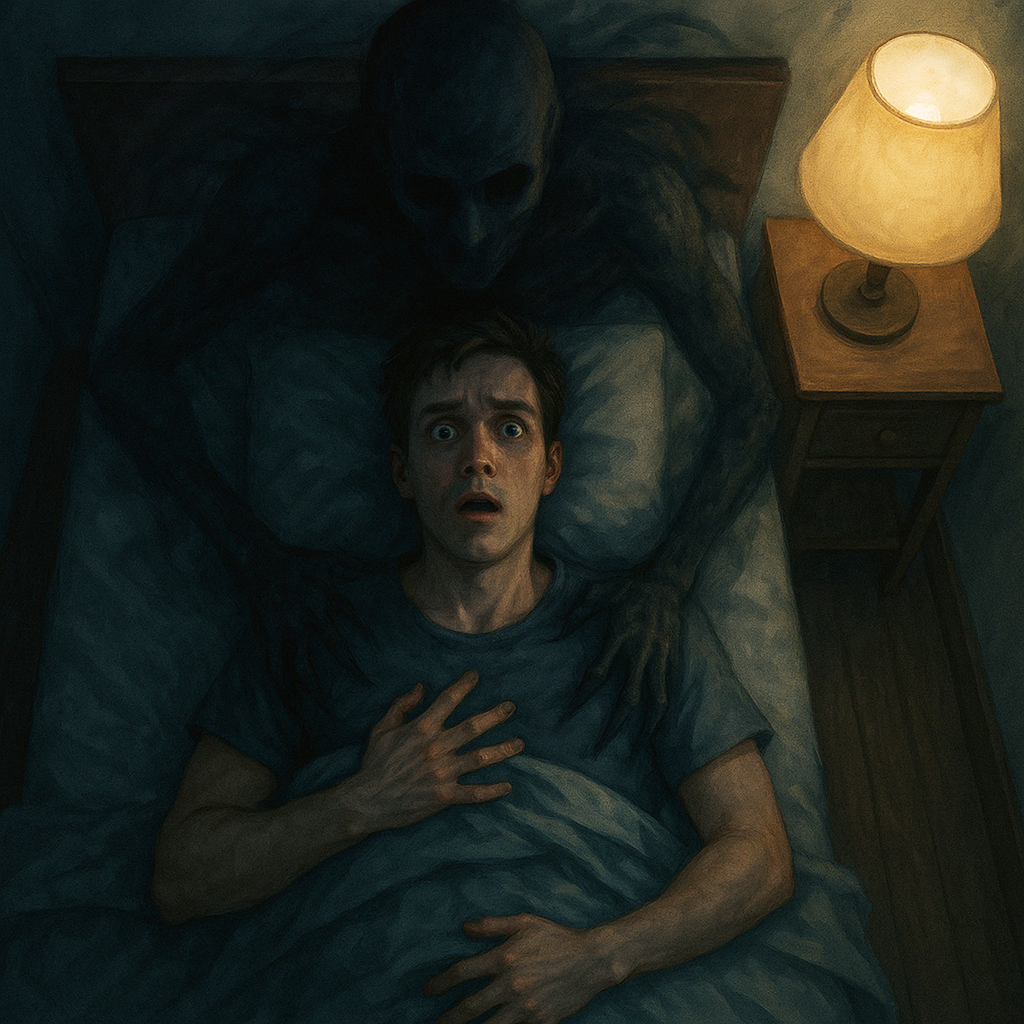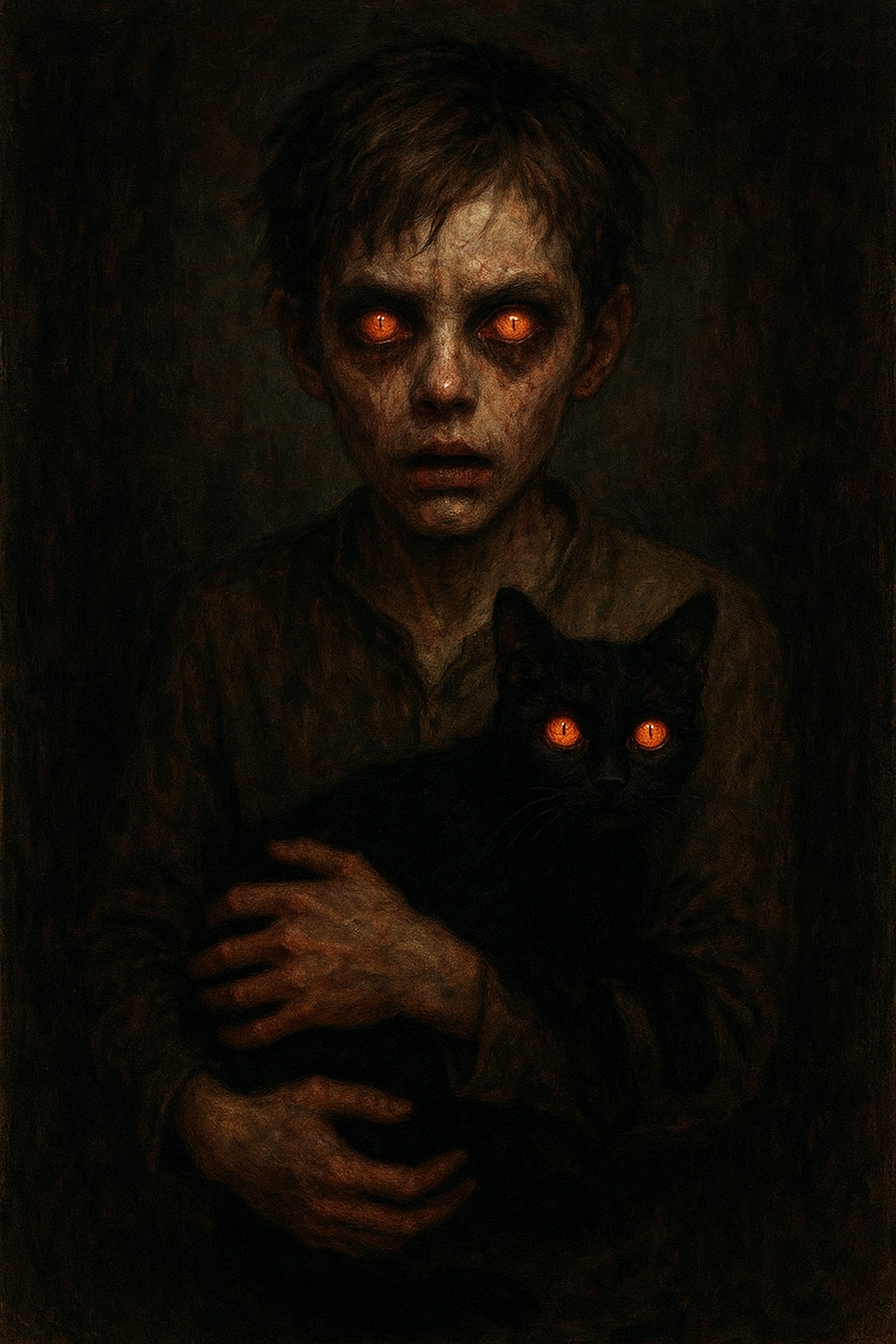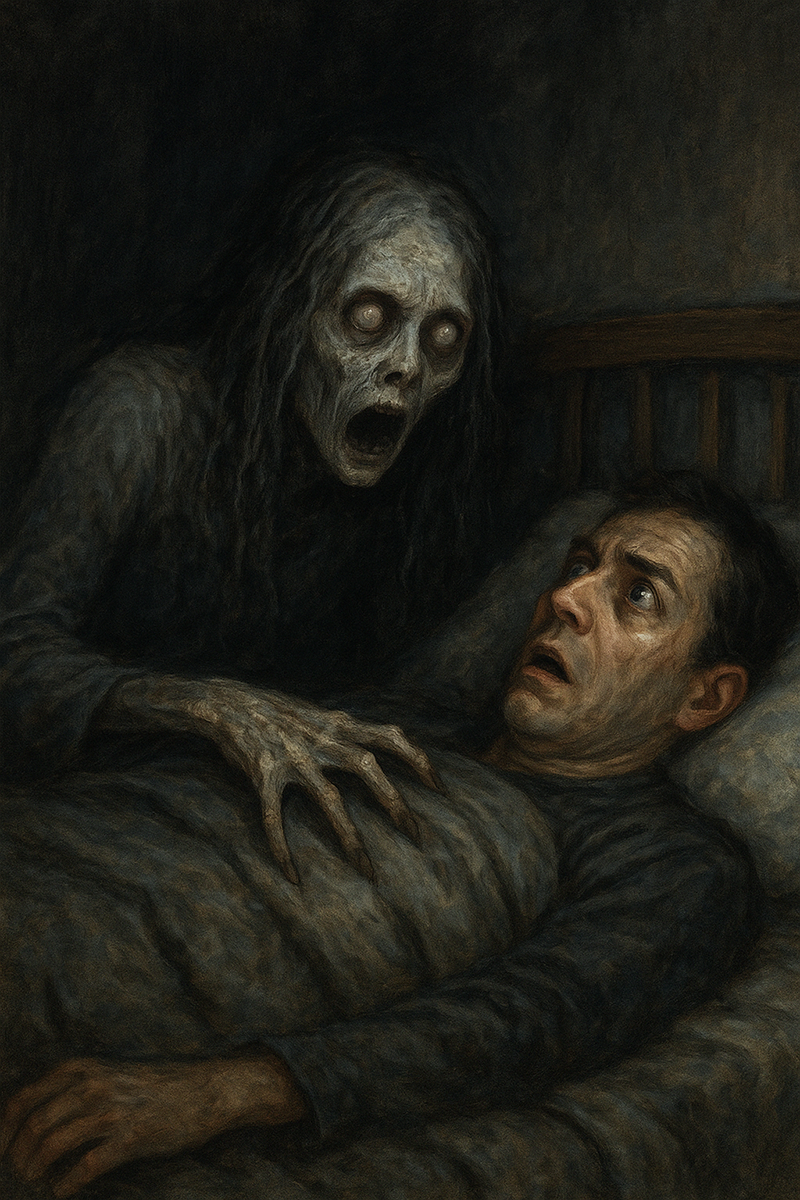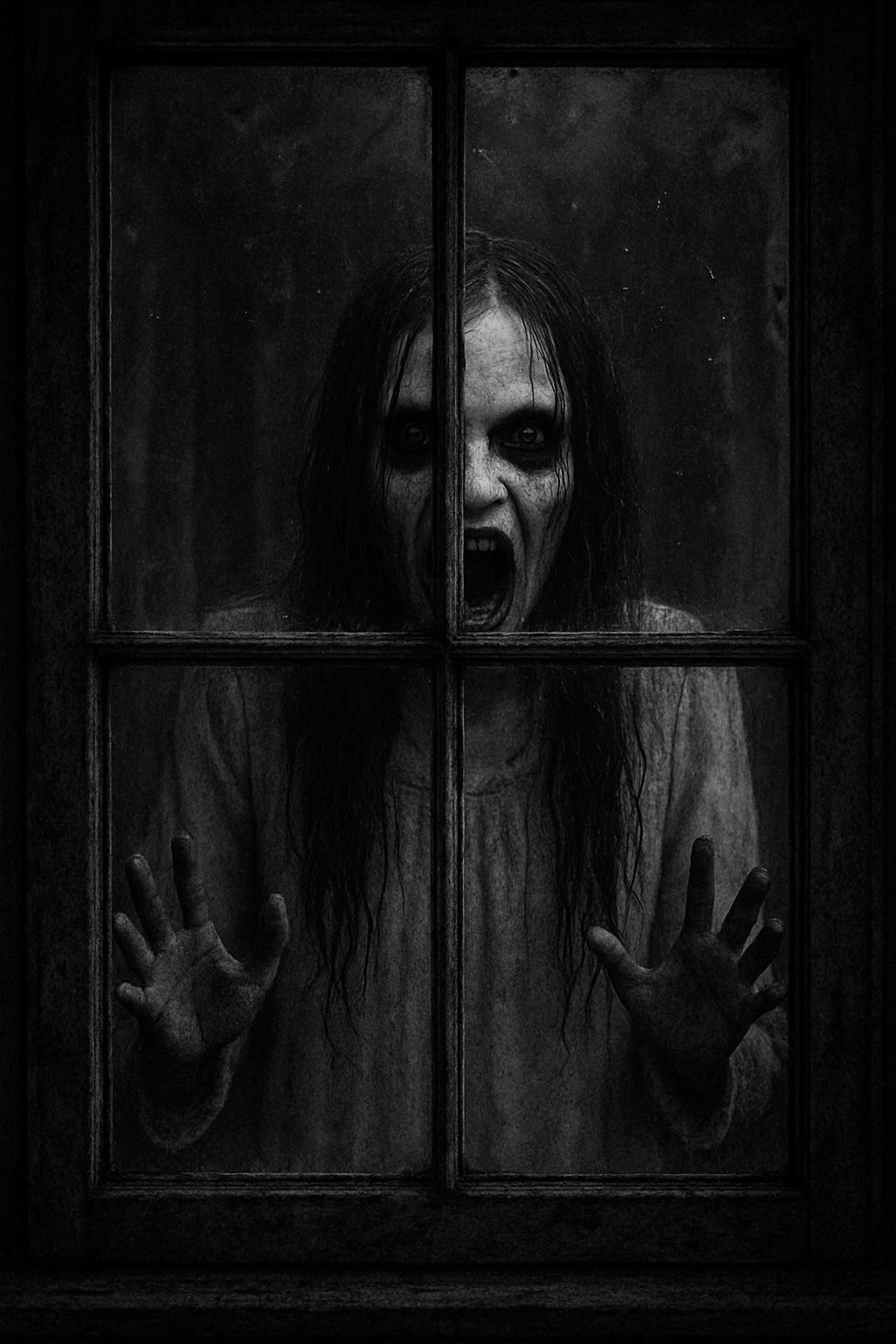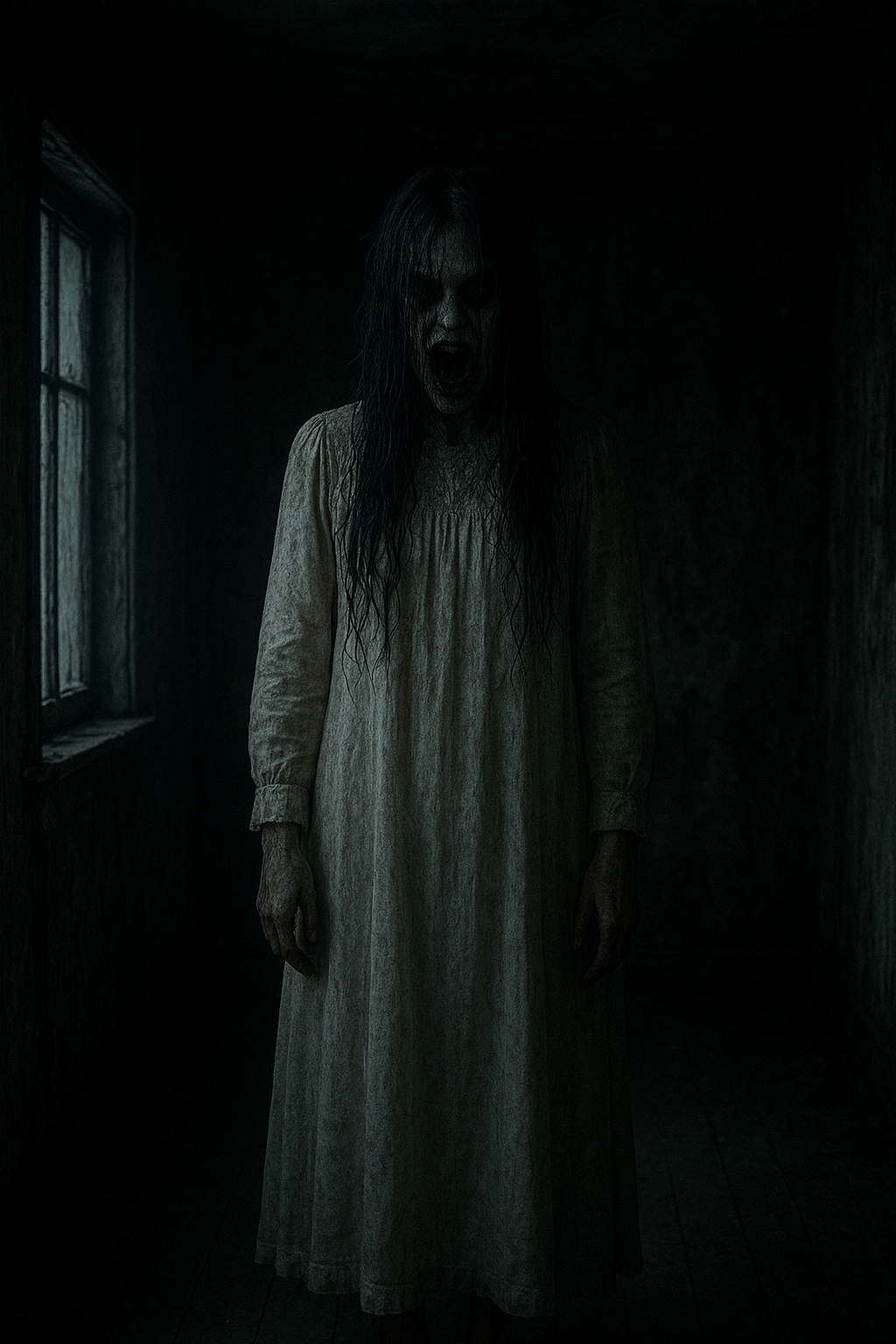I woke to the feeling of weight. Not the kind that comes from blankets, but something colder, heavier—pressing directly against my chest. My breath caught, shallow and panicked, as if the air itself had thickened and was forcing its way out of me.
I tried to move, but the pressure held me in place. The room was silent, but I wasn’t alone. I could feel it—the undeniable sense of something leaning over me, inches from my face. The skin along my arms prickled as if icy breath was drifting across me.
A whisper of movement brushed past my ear. I snapped upright with a violent jerk, my lungs heaving, and slammed my hand against the lamp switch. The bulb flared to life.
The presence was gone, but the air still vibrated with it—like it hadn’t retreated, just pulled back into the shadows, watching. My pulse thudded in my ears. I couldn’t stay in that room another second.
I stumbled into the living space, my voice trembling as I called out, “Hey—are you awake?”
Silence.
The barracks room seemed to hold its breath. Every second without a response stretched tighter and tighter, until the shadows at the edges of the light felt alive, bending closer. I called again, louder this time, desperate, because the thought struck me—what if the thing that had been hovering over me had already reached them first?
It turned out that weekend my roommate was away for the weekend on Military leave.
